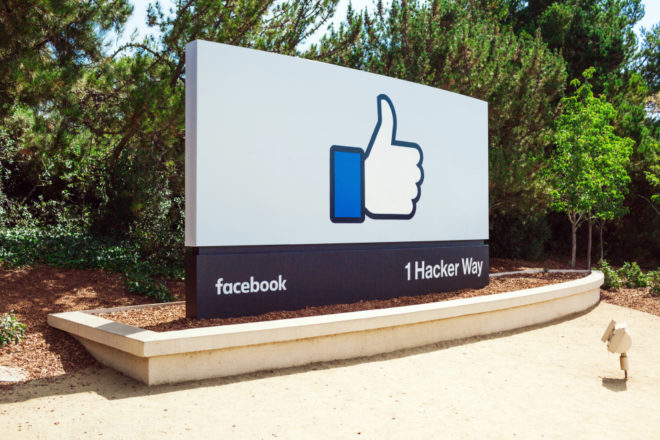Summer Flame Day: Facebook is Bad

Facebook has been in the news a lot lately, and almost entirely for bad reasons. The social network was merely regarded as a place for members to share and discuss the happenings in their lives, though it’s also become known as a hotbed for petty drama and political debate over time. It was a good place to say hello to old friends and family members you either haven’t spoken to in a while or rarely speak to, with the unexpected surprise from some revealing their true selves. Its development into a gigantic hub now worth billions of dollars was enough for some members who used it frequently when it started as a network for college students to lessen their activity as it became too crazy. No, I’m not just talking about me.
In fact, it’s the “political debate” that led to its recent problems. Facebook was inundated with fake news (as in, actual fake news here) from Russians and others with the intention of influencing the 2016 presidential election. It was exposed that Facebook has been mishandling people’s data for years, and now-defunct data group Cambridge Analytica used that for their efforts to influence users’ thoughts on politics.
There were also several other ways in which Facebook violated their pledge to protect the data of its users, like how their Android app collected call logs and texts without users knowing. The company is going through its worst moments, so it’s no surprise that they’re making some changes.
Or, at least, they’re pledging to make them. The changes won’t be enough, something several enthusiasts, whistleblowers, and ex-employees have been telling them and the public. But they aren’t getting through, and it feels like Facebook is taking the bare minimum of steps to curb future issues. It doesn’t help when Facebook’s PR and execs have outright lied about their actions, which has led to easily solvable trust issues.

Facebook is also clearly having trouble establishing a system that weeds out the kind of fake news that flooded people’s feeds a couple of years ago, and still does to this day among some groups. What’s making this worse is how conservative groups are doing their usual grifting and claiming they’re being treated unfairly while presenting no evidence of the sort, and Facebook is exasperatingly falling for it. In response, they’ve hired a former Republican senator and conservative thinktank The Heritage Foundation for assistance, and have employed a conservative lobbyist to investigate the matter. Several conservative “news” sites were left out of their considerations for reliable news services for spreading disinformation, but they got exactly what they wanted by having Facebook take this “issue” seriously.
They’ve also already had trouble distinguishing clear satire from fake news, which is also a problem. It shows that whoever’s doing the fact-checking should be more careful about this.
Even if that wasn’t the case, though, there are several reasons not to trust the words of CEO Mark Zuckerberg. A significant recent one involved his testimony to Congress back in April, where Zuckerberg said users have “complete control” over what they can share on Facebook. While that was the case for the aforementioned Android phone data mishap (the option to turn it off was, however, buried in menus), it wasn’t for the data-sharing partnerships they had with several device makers, detailed in a report by the New York Times. This led to companies like Apple and Samsung obtaining access to the data of users and their friends without their consent, in possible violation of an agreement made with the FTC.
Facebook responded in a blog post saying they only did this in the interest of the public, but stopped short of saying this didn’t happen. Sandy Parakilas, a former Facebook operations manager, delved into why their response was misleading in a tweet thread. To no surprise, they didn’t actually deny the story if you read between the lines. This is only further evidence that Facebook shouldn’t be trusted.
Facebook has launched its biggest-ever ad campaign to apologize for their mistakes. But it should be tough for anyone to take them seriously given everything that’s happened, and how they’ve misled the public about how complicit they’ve been in this fiasco. They also haven’t fixed other issues that have plagued the platform for years, like how hate and terrorist groups can still roam free with accounts under the guise of “impartiality.” They’re far from the only social media network with serious problems regarding transparency and misuse of data, sure, but that doesn’t mean they should be excused.
I’d love to end this post by saying you should delete your account with swiftness, and more power to you if you go, or have gone, through with it. But if you’re like me, you keep your account around because it’s one of the best ways to keep contact with friends and family members despite minimizing your activity on it. That’s how they get and keep you, and what makes the overall platform look healthy to their shareholders. But given everything that’s happened, I suggest giving them as little data as possible and making sure not to check off any undesirable options. There’s no way this will be the last scandal.





You had me at the title.
I knew you’d be here! I’d get out of Facebook if it wasn’t for my family, but that’s also the reason why I use it less. So that’s something.
Honestly, it’s the same for me Geoff. Though I’m tempted to just up and leave anyway. I barely use the service.
I know how you feel! But I like checking in with family every now and then, so I’ll leave it… for now.